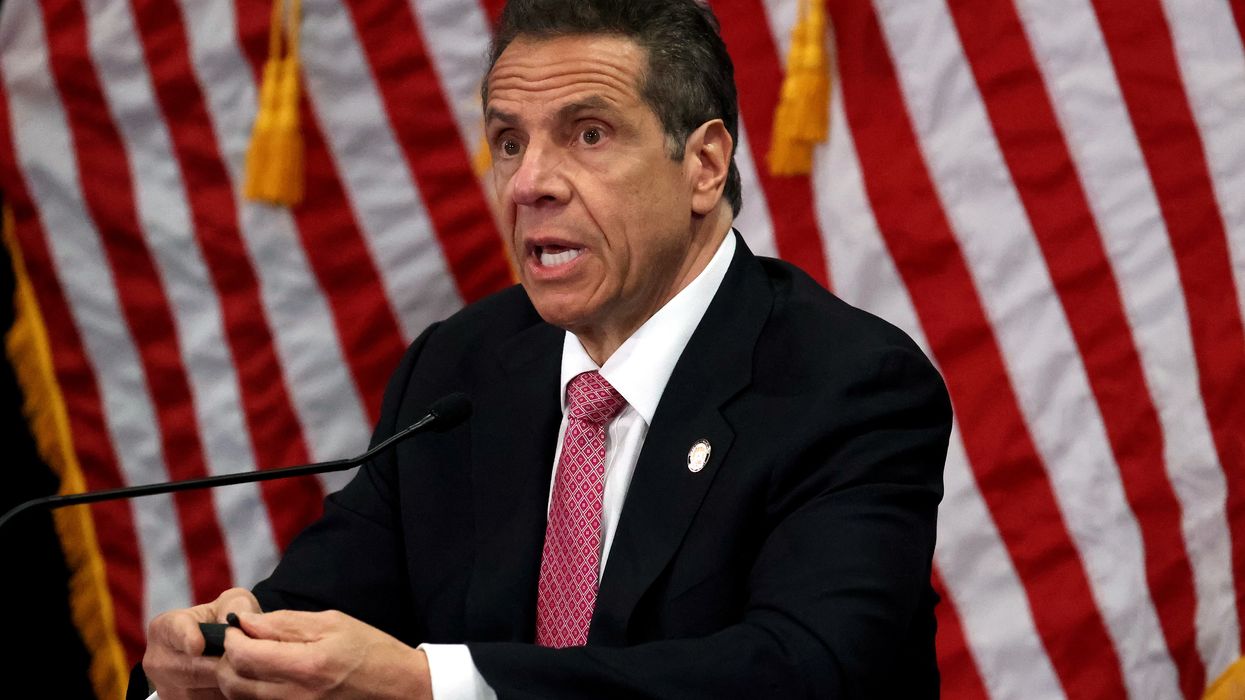The unique effort by top Democrats in New York to outright cancel their presidential primary looks to be over after just 10 days, ending an extraordinary challenge by the party to the bedrock democratic principle that contested elections are never called off.
A federal judge on Tuesday ordered election officials to conduct the primary as planned on June 23, with all qualifying candidates on the ballot.
The ruling halts a plan to drop the presidential contest, ostensibly over concerns about the coronavirus, while nonetheless proceeding with nomination elections for all other down-ballot offices. That inconsistency prompted progressive groups, especially, to accuse Gov. Andrew Cuomo of a shameless attempt to help presumed nominee Joe Biden while trampling the electorate's fundamental rights.
New York's decision had exposed Cuomo and the Democrats to criticism they were no fairer in administering the presidential contest than Republicans, who called off their presidential primaries in five states last fall even when President Trump's renomination was being opposed by three nationally known if extremely longshot challengers.
"I'm glad that a federal judge agreed that depriving millions of New Yorkers the right to vote was wrong," said Andrew Yang, the former presidential candidate who sued to restore the primary. "I hope that the New York Board of Elections takes from this ruling a newfound appreciation of their role in safeguarding our democracy."
Officials at the board, which is controlled by Cuomo allies, said they were reviewing the decision but were poised to appeal. The governor said the state would follow the court's ruling for the time being but also didn't rule out the possibility of an appeal.
Although the board had cited the state's spot in the center of the nation's public health emergency when it canceled the presidential part of the primary on April 27, District Judge Analisa Torres said that excuse was not valid in light of Cuomo's decision several weeks earlier to suspend the state's usual requirements for having a specific excuse to vote absentee.
"Protecting the public from the spread of Covid-19 is an important state interest," she wrote. "But the court is not convinced that canceling the presidential primary would meaningfully advance that interest — at least not to the degree as would justify the burdensome impingement" on the rights of voters and candidates alike.
The cancelation had drawn particular outrage from the allies of Sen. Bernie Sanders of Vermont, who suspended his presidential bid in April but said he wanted to remain on primary ballots and accrue convention delegates who could shape a platform more progressive than what would be expected from Biden, the former vice president.
The judge agreed. Removing presidential contenders from the primary ballot "deprived Democratic voters of the opportunity to elect delegates who could push their point of view in that forum," she said. "The loss of these First Amendment rights is a heavy hardship."
Sanders' campaign called the decision "an extraordinary victory for the democratic process here in New York, a state much in need of something to cheer about."
The board said an essentially meaningless contest for 274 delegates might have drawn an extra 1.5 million to local polling places. Candidates for Congress, the Legislature and other offices didn't dispute that — arguing that without Biden and Sanders on the ballot the turnout for their races would be unduly minimized.
The judge's ruling, if it stands, will assure higher turnout and is a positive for New York voters, said Jennifer Wilson, deputy director of the state's League of Women Voterschapter.
"From an administrative point of view, it's going to be a much bigger lift for the county boards of elections to pull this off," she said. "But generally this is more positive than negative. It's certainly something voters really wanted."




















